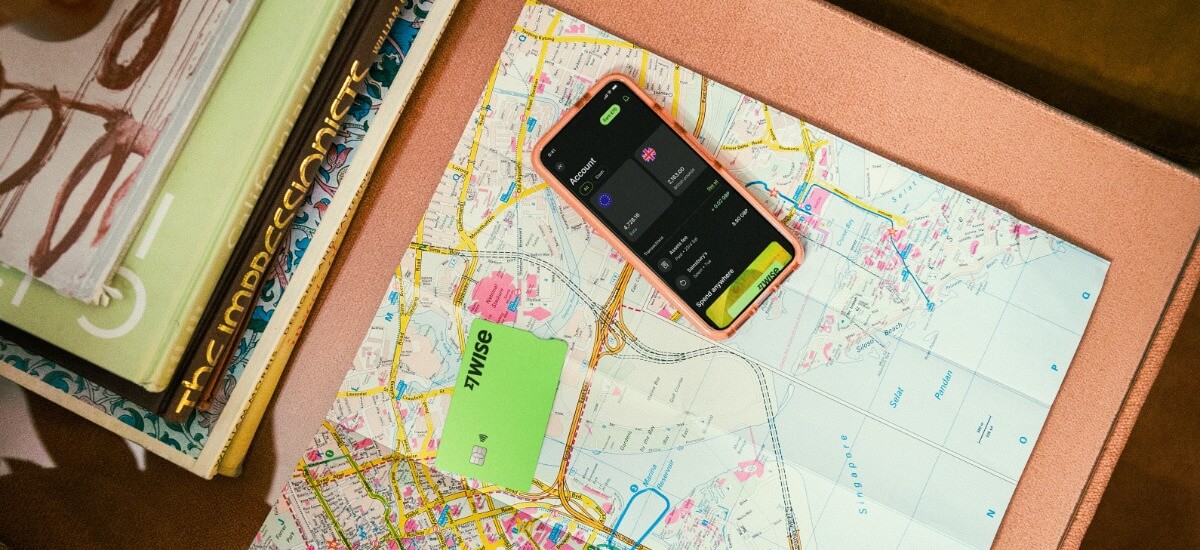How to buy a house in the Philippines: US guide
Interested in buying a house in the Philippines? Here’s everything you need to know about buying property abroad as an American.

Japan is becoming more popular with American expats because of its rich culture and amazing cuisine — who doesn't love sushi? The country has a stable real estate market, so you may be thinking about buying a house in Japan and whether or not that's even possible.
The short answer is that Americans can buy and own houses in Japan with no restrictions. However, there are important things that you should be aware of to successfully navigate the Japanese real estate market — especially when it comes to financing.
Here's everything you need to know on how to buy a house in Japan as an American.
We'll also introduce Wise — your international money transfer alternative. Use Wise to send large transfers to Japan - all at the standard mid-market exchange rate.
| Table of contents |
|---|
Yes, Japan allows foreigners to buy property with virtually no restrictions.
You don't need permanent residency, a specific visa status, or even to live in Japan to purchase real estate. The legal rights you'll have as a property owner are pretty much identical to those of Japanese citizens.
In Japan, there are 2 main ownership types: freehold and leasehold.
Freehold ownership (Shoyuken) grants you complete control over both the land and the building. You'll own the property and will be able to make modifications as well as pass it down to your heirs.
Leasehold ownership (Shakuchiken) splits the rights between the building and the land underneath. This arrangement is common in major cities, where land is at a premium.
With Surface Rights (Chijoken), you own the building and can modify it, but you must pay annual land fees to the landowner. Rental Rights (Chinshakuken) are more restrictive — you'll need the landlord's permission for renovations and face limitations on reselling.
The important thing to know is that buying property won't help you stay in Japan long-term.
If you don't have Japanese residency or an appropriate visa, you're limited to 90-day tourist stays.¹ This means that you'll only be able to use your house as a vacation property or as a rental investment.
Getting permanent residency in Japan is a pretty lengthy and complicated process. You need to first live there for at least 10 years under a valid visa, typically through employment or marriage.² High-income professionals can sometimes qualify for permanent residency sooner.
| Learn more about moving to Japan in our full guide. |
|---|
The answer to this question heavily depends on your personal situation and goals. Since it can be difficult to secure the legal right to live in Japan year-round, there are important pros and cons to consider.
Pros:
- Japanese houses often come with lower purchase prices compared to similar real estate in the US, especially if you look outside city centers
- You can use your Japanese house as a vacation property for when you visit, especially if you plan on traveling there often
- You can rent your property out to generate extra income
Cons:
- Without permanent residency or a long-term visa, you won't be able to live in your house full-time
- If you want to rent your property out, you'll most likely need to hire a local property management company, which adds to your ongoing costs
- Japanese banks rarely provide mortgages to non-residents, meaning you'll probably need to buy in cash or use an international mortgage lender
Overall, buying property in Japan makes the most sense for people who have a deep connection to Japanese culture and plan to visit regularly. It also makes sense for permanent residents.
You should also typically have the financial means to purchase your house without local financing.
| Learn more about buying property abroad as an American. |
|---|
Yes, you can purchase both houses and land without citizenship or residency status. Japan treats foreign buyers the same as Japanese citizens in real estate transactions.
However, owning real estate won't help your visa status or provide a path to residency.
You'll find all kinds of different property prices in Japan. However, here's what you can expect on average in a few of Japan's major cities.
| City | City center (per square meter) | Outside center (per square meter) |
|---|---|---|
| Tokyo³ | 1,538,417 JPY | 766,238 JPY |
| Yokohama⁴ | 966,667 JPY | 433,333 JPY |
| Osaka⁵ | 520,000 JPY | 415,000 JPY |
| Nagoya⁶ | 365,000 JPY | 222,500 JPY |
| Sapporo⁷ | 350,000 JPY | 250,000 JPY |
| 🔍 Wondering how much that would cost in USD? Check out this handy conversion calculator: |
|---|
So, how much do houses cost in Japan?
As you can see from the table, Tokyo is the most expensive city to buy property in. It also has a big difference between central and more suburban areas, so if you're willing to buy outside of the city center, you'll be able to find more affordable options.
Yokohama is another relatively expensive Japanese city, but places like Osaka, Nagoya, and Sapporo are more affordable. If you're looking to buy a house with more space, these cities can be good options.
The easiest way to buy a house in Japan is in cash. It's difficult for non-residents to get financing from a local bank, so consider saving up for your purchase. Cheap Houses Japan has pretty affordable listings, many of them under 100,000 or even 50,000 USD.
Beyond the house price, you also need to budget for transaction costs that come with a real estate purchase. Typically, that's 5% to 6% of the purchase price. If you're getting a mortgage, banks charge an additional 1 to 2% in fees.⁸
Here's a breakdown of the property taxes and fees that you can expect when buying a house in Japan.
| Fee⁸ | Typical cost |
|---|---|
| Real estate agent | 3% of property price + 60,000 JPY + 10% tax |
| Legal fees (judicial scrivener) | 100,000 to 150,000 JPY |
| Registration tax | 2% |
| Stamp duty | 10,000 to 480,000 JPY (based on purchase price) |
| Property acquisition tax | Land: 1.5% of assessed value Residential Building: 3% of assessed value Commercial Building: 4% of assessed value |
| Setup costs | Depends, but plan for insurance and utilities connection |
| Fee⁸ | Amount |
|---|---|
| Fixed asset tax | 1.4% |
| City planning tax | 0.3% |
| Rental income tax | 20.42% |
| Property management | Varies |
The Fixed Asset Tax is the main annual tax, and you can expect to pay 1.4% of the property's assessed value. The government reassesses property values every three years, so how much you pay can go up or down. You'll also have to pay a 0.3% city planning tax.⁸
If you buy property partway through the year, you'll pay this tax proportionally from your purchase date.

Now that we covered some of the basics, the only question left is: how to send money to pay for your property overseas?
Wise offers you a quick, secure, and transparent way of sending money to Japan. You get the mid-market exchange rate for your payments and see how much it’s charged for the transfer before sending the money from your bank.
With the Wise Account, you can also hold 40+ currencies, spend money in 150+ countries, and receive like a local in 9 different currencies.
Please see Terms of Use for your region or visit Wise Fees & Pricing for the most up-to-date pricing and fee information
Here's what you can expect from the process of buying a house in Japan.
Before diving in, clearly define your budget and preferred locations. Then, research available properties online. Platforms like Real Estate Japan and Japan Property can be a helpful place to start.
That said, you should typically work with a qualified real estate agent. You can find one through online platforms or local recommendations. Once you choose an agent, you'll sign an agency agreement and pay a 3% commission.⁸⁹
The offer process looks different depending on whether you're buying a new or a pre-owned property. For new properties, you'll submit an Application to Purchase (kounyuu moshikomisho) along with an application fee, which can be as high as 100,000 JPY.⁹
For pre-owned homes, you'll submit a Letter of Property Purchase Intent (kaitsuke shoumeisho) to show that you're interested in the property.
You'll need to arrange for a professional inspection of the property after your offer is accepted.
You'll also need to review the Explanation of Important Matters (juuyoujikou setsumeisho) — this document outlines everything about the property, including existing mortgages, restrictions, building condition, management fees, and any potential disputes with neighbors.
Securing a local loan in Japan can be challenging if you don't have permanent residency. Many foreign buyers either pay cash or arrange financing through international banks.
If you're not eligible for a Japanese mortgage, consider alternative financing options such as getting a mortgage for an overseas property.
You'll sign the Purchase and Sales Agreement (PSA) and pay a deposit called earnest money (tetsukekin)* *to the seller. You'll also need to pay your down payment, which is typically 5-10% of the purchase price.⁹
You'll pay the remaining balance and all associated fees, sign the property transfer documents, and receive your keys and ownership documentation. You'll need to do this at the bank with a judicial scrivener.
Getting a mortgage in Japan as a foreigner isn't easy. That said, permanent residents with stable jobs and those married to Japanese citizens may be able to get financing from a Japanese bank.
When you apply, banks will look at:
- Your annual household income
- Employment history and current status
- Existing debt and credit history
- Japanese language proficiency (required by some banks)
Without permanent residency, you still have a few paths to financing:
- Some Japanese financial institutions offer special loan products for foreigners without permanent residence — however, these often require higher down payments and interest rates
- International banks with Japanese branches may offer mortgages to their customers
- If you have a Japanese spouse or a permanent resident family member, they might be able to co-sign your mortgage application
You can also try getting a mortgage from your bank in the US.
Buying property in Japan as an American is entirely possible, but there are certain things to keep in mind.
First, there is a 90-day limit on stays without proper residency status for Americans.¹ So, you can use your Japanese property as a vacation home, but you won't be able to live there full-time without a visa or permanent residency.
It's also difficult to get financing from a Japanese bank if you're not a resident. If you can't get a loan from an international lender or your US bank, you'll likely need to pay for your house in cash.
As long as you're fine with these limitations, buying a house in Japan can be a solid and exciting investment.
To send, spend, and convert money like a local in Japan, use Wise.
Sources
*Please see terms of use and product availability for your region or visit Wise fees and pricing for the most up to date pricing and fee information.
This publication is provided for general information purposes and does not constitute legal, tax or other professional advice from Wise Payments Limited or its subsidiaries and its affiliates, and it is not intended as a substitute for obtaining advice from a financial advisor or any other professional.
We make no representations, warranties or guarantees, whether expressed or implied, that the content in the publication is accurate, complete or up to date.

Interested in buying a house in the Philippines? Here’s everything you need to know about buying property abroad as an American.

Interested in buying a house in Portugal? Here’s everything you need to know about buying property abroad as an American.

Interested in buying a house in Dubai? Here’s everything you need to know about buying property abroad as an American.

It's not common for Chase to hand out international mortgages, but here's what you need to know and available alternatives.

Read on for everything you need to know about getting an international mortgage from Citibank.

Read on for everything you need to know about getting an international mortgage from NatWest.